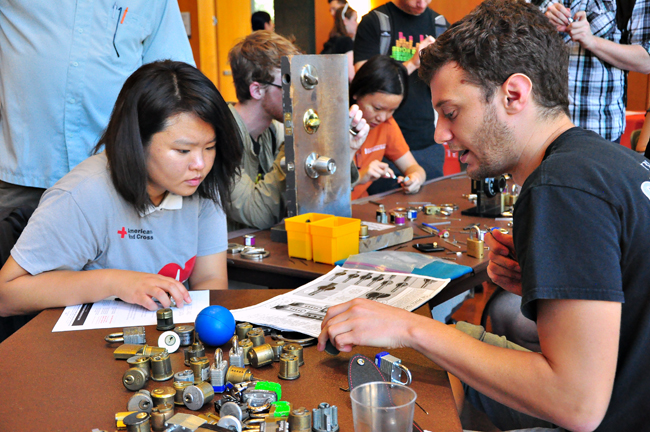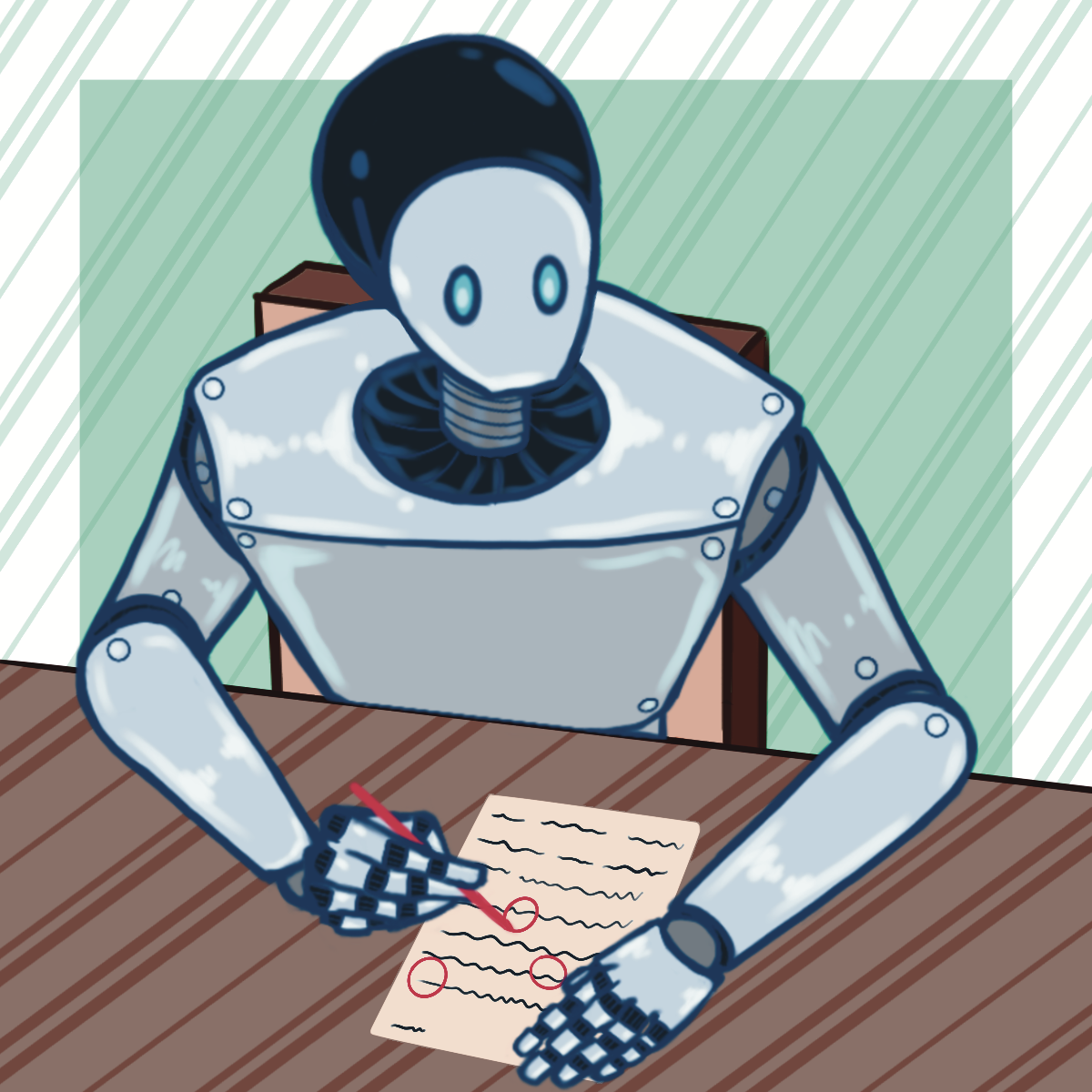At the NSCAM Cyber Security Expo on Tuesday, UT’s Information Security Office gave students and faculty the chance to learn how to protect their cyber-selves.
Hosted in the SAC, the event featured speakers and vendors from a variety of companies and organizations that sought to educate and demonstrate how to best protect personal information.
Tim Martin, enterprise systems engineer at the software company Code42, said the company he works for provides students with a secure cloud backup program called Crash Plan.
“Crash Plan is a cloud-based endpoint backup system that takes care of all the data on your laptop or desktop,” Martin said. “It is able to compress and duplicate the data so it’s efficiently stored and safely stored at our cloud facility.”
Martin said his daughter had her laptop stolen from the back seat of a car, but her writing was protected.
“Her master’s paper … was on her laptop,” Martin said. “She would have to go through that whole process of remembering those wonderful thoughts she had once upon a time, then putting them back into a document.”
Google account executive Jack O’Connell said encryption is important to cyber privacy.
“Data encryption is very important; there has been reports of the NSA and other government agencies eavesdropping from cloud
companies. That’s where Google steps in,” O’Connell said. “As a company, we encrypt data in transit and at rest.”
In contrast to cyber security, John Gordon, network security analyst for the Information Security Office, said consumers must know how to protect their physical possessions. He hosted a lock- picking workshop for attendees to highlight how easy it is to pick an everyday door lock.
“As a responsible consumer, you should understand what technology is protecting your belongings, your house,” Gordon said. “[A lock] is a very simple mechanism. It’s been shrouded in secrecy over the years, but, once you understand the concept, it’s very easy to get into locks that people put on their front doors.”
Josh Sokol, Open Web Application Security Project Foundation member, said, in the event of a cyber attack, there are ways to protect oneself.
“There are lots of good, free programs out there that you can use for malware stuff,” Sokol said. “If you have an actual person hacking you, chances are pretty good that’s not going to work.”
Sokol said that when free programs do not detect cyber hacking, the best solution is to completely clear the hard drive of the computer at risk.
“Best practice: Wipe it and start over,” Sokol said. “There’s no telling what has happened to your computer.”


















